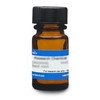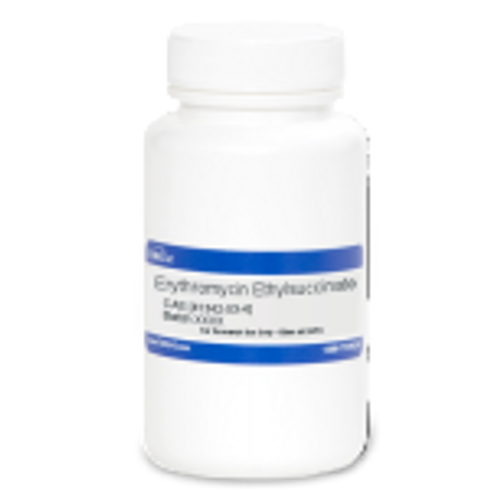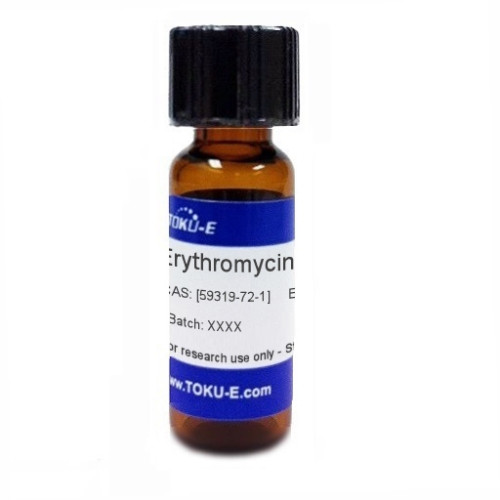Erythromycin Thiocyanate is the thiocyanate form of the broad-spectrum macrolide antibiotic Erythromycin. It was discovered in 1952 from Saccharopolyspora erythraea (formerly Streptomyces erythraeus). Erythromycin acts by inhibiting bacterial protein synthesis.
For other Erythromycin products, click here.
| Mechanism of Action | Macrolide antibiotics inhibit bacterial growth by targeting the 50S ribosomal subunit preventing peptide bond formation and translocation during protein synthesis. Resistance to erythromycin is commonly attributed to mutations in 50S rRNA preventing erythromycin binding allowing the cell to synthesize proteins free of error. Erythromycin is also a splicing inhibitor of eukaryotic nuclear pre-mRNA, almost completely inhibiting the formation of the splicing-active C complex. |
| Spectrum | Effective against Gram-positive bacteria, Gram-negative bacteria, and Mycoplasma. |
| Microbiology Applications | Erythromycin Thiocyanate has an antibacterial spectrum similar to benzylpenicillin. It is effective for S. aureus including penicillin-resistant staphylococcus, streptococci, and pneumoniae. |
| Molecular Formula | C37H67NO13 • HSCN |
| References | Hertweck M, Hiller R, Mueller MW (2002) Inhibition of nuclear pre-mRNA splicing by antibiotics in vitro. Eur. J.Biochem. 2269 (1):175-183 PMID 11784311 Menninger JR, Otto DP (1982) Erythromycin, carbomycin, and spiramycin inhibit protein synthesis by stimulating the dissociation of peptidyl-tRNA from ribosomes. Antimicrob Agents Chemother. 21(5):811-8 PMID 6179465 |







